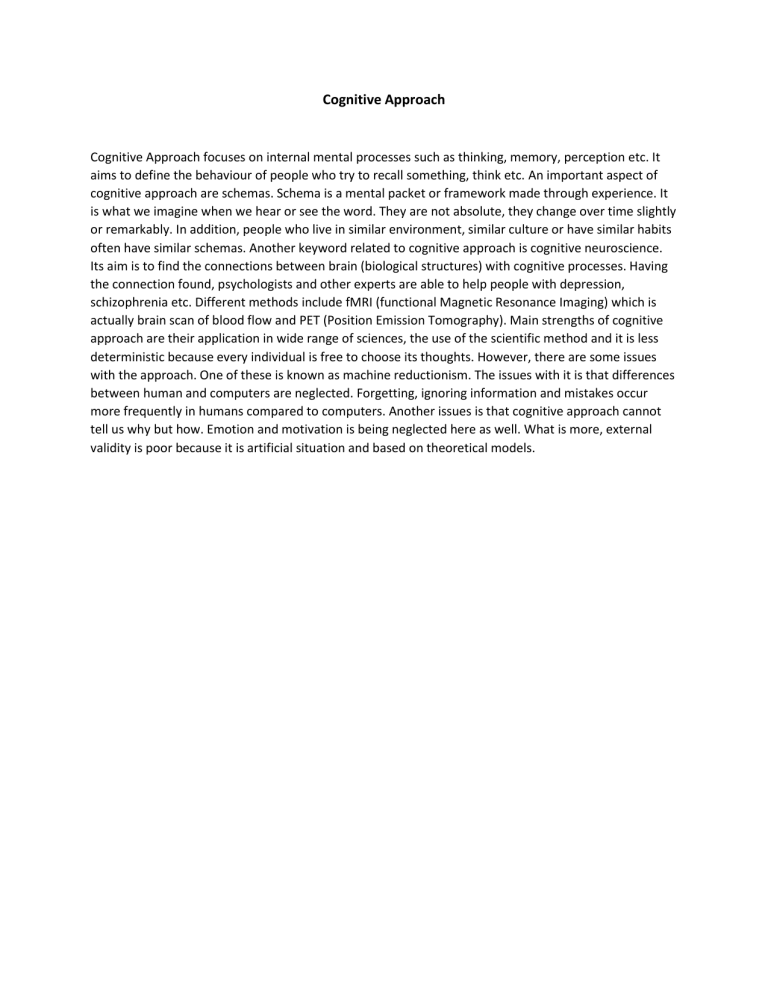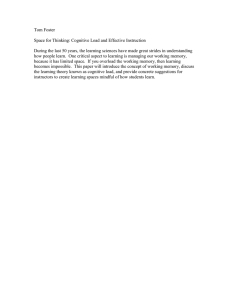
Cognitive Approach Cognitive Approach focuses on internal mental processes such as thinking, memory, perception etc. It aims to define the behaviour of people who try to recall something, think etc. An important aspect of cognitive approach are schemas. Schema is a mental packet or framework made through experience. It is what we imagine when we hear or see the word. They are not absolute, they change over time slightly or remarkably. In addition, people who live in similar environment, similar culture or have similar habits often have similar schemas. Another keyword related to cognitive approach is cognitive neuroscience. Its aim is to find the connections between brain (biological structures) with cognitive processes. Having the connection found, psychologists and other experts are able to help people with depression, schizophrenia etc. Different methods include fMRI (functional Magnetic Resonance Imaging) which is actually brain scan of blood flow and PET (Position Emission Tomography). Main strengths of cognitive approach are their application in wide range of sciences, the use of the scientific method and it is less deterministic because every individual is free to choose its thoughts. However, there are some issues with the approach. One of these is known as machine reductionism. The issues with it is that differences between human and computers are neglected. Forgetting, ignoring information and mistakes occur more frequently in humans compared to computers. Another issues is that cognitive approach cannot tell us why but how. Emotion and motivation is being neglected here as well. What is more, external validity is poor because it is artificial situation and based on theoretical models.


